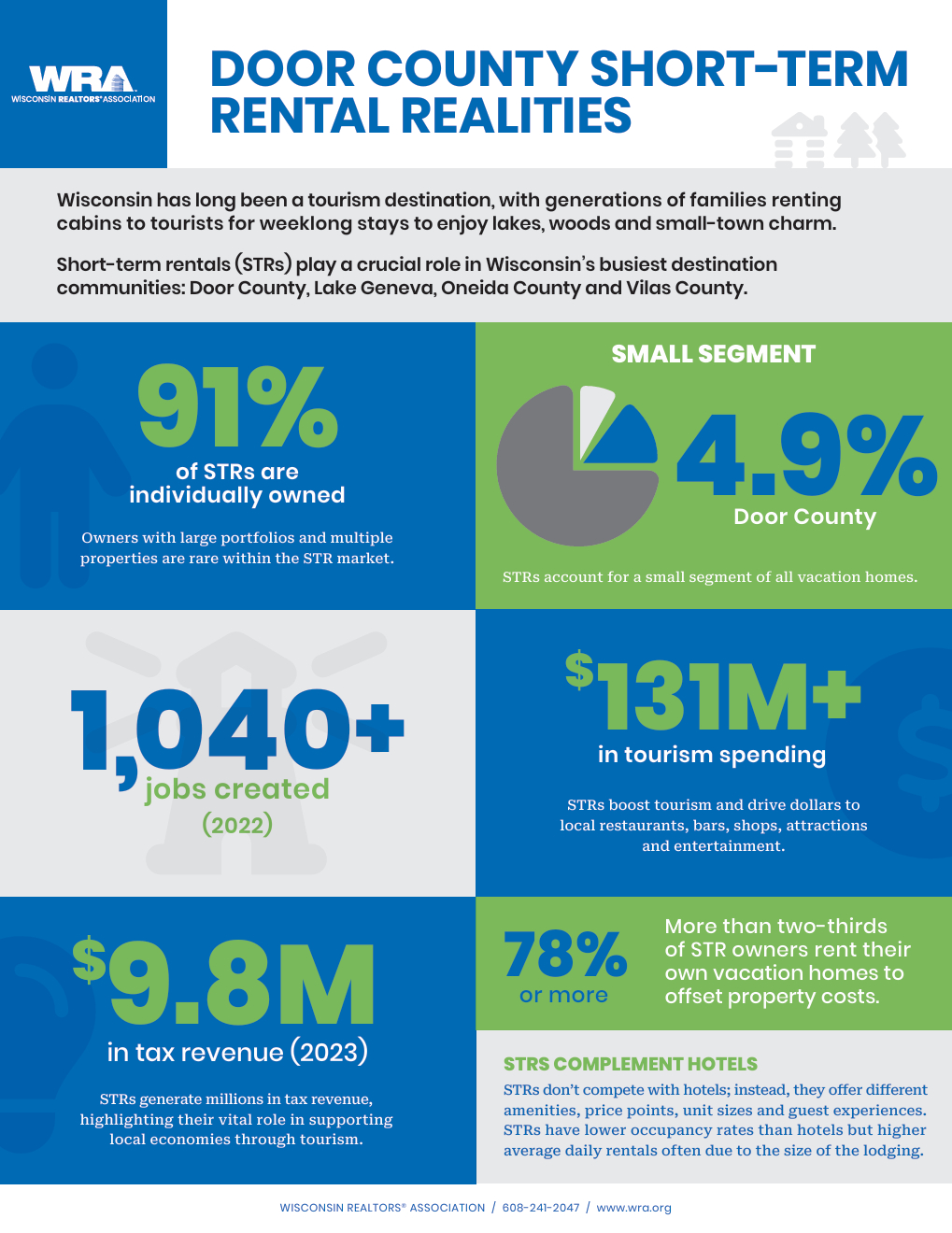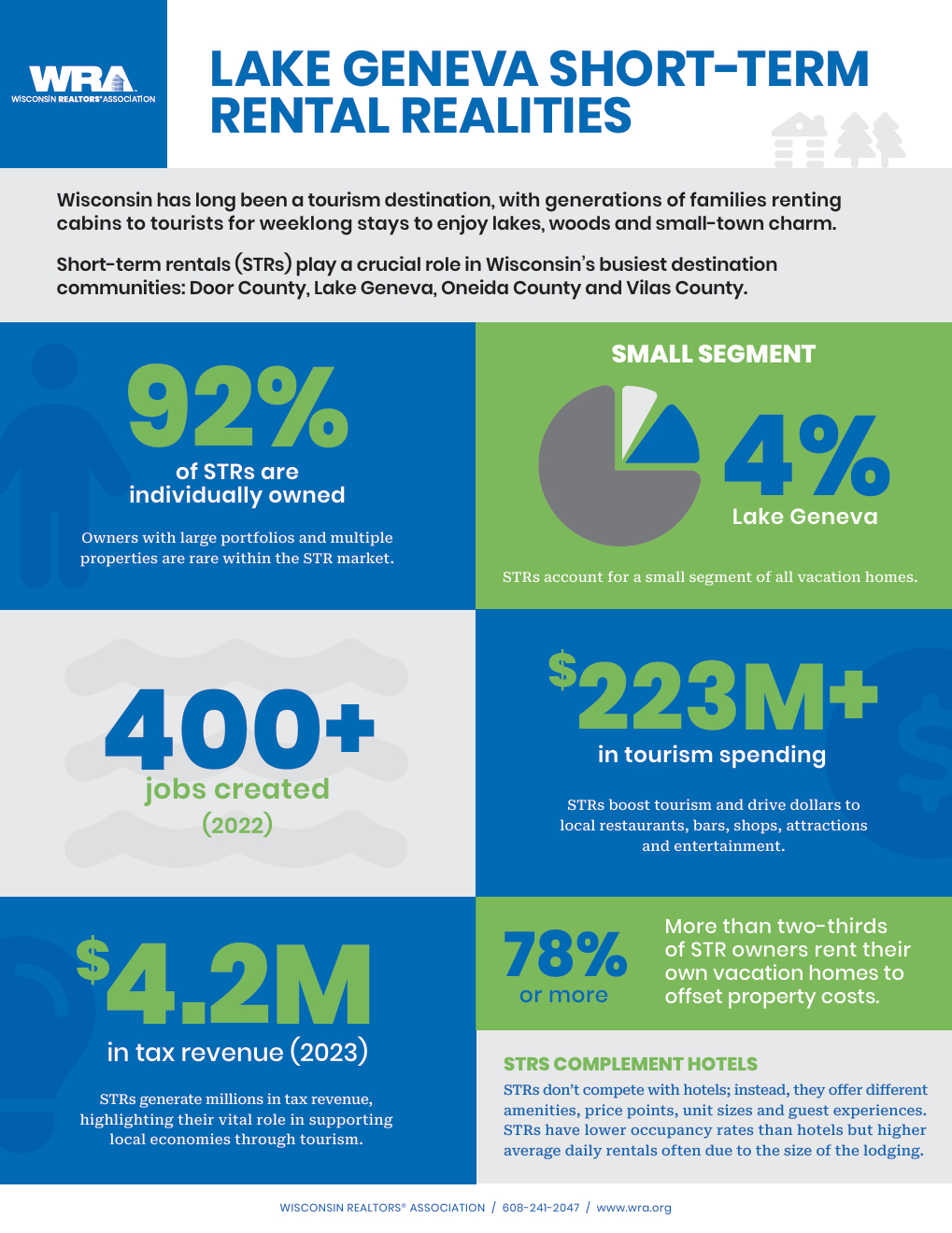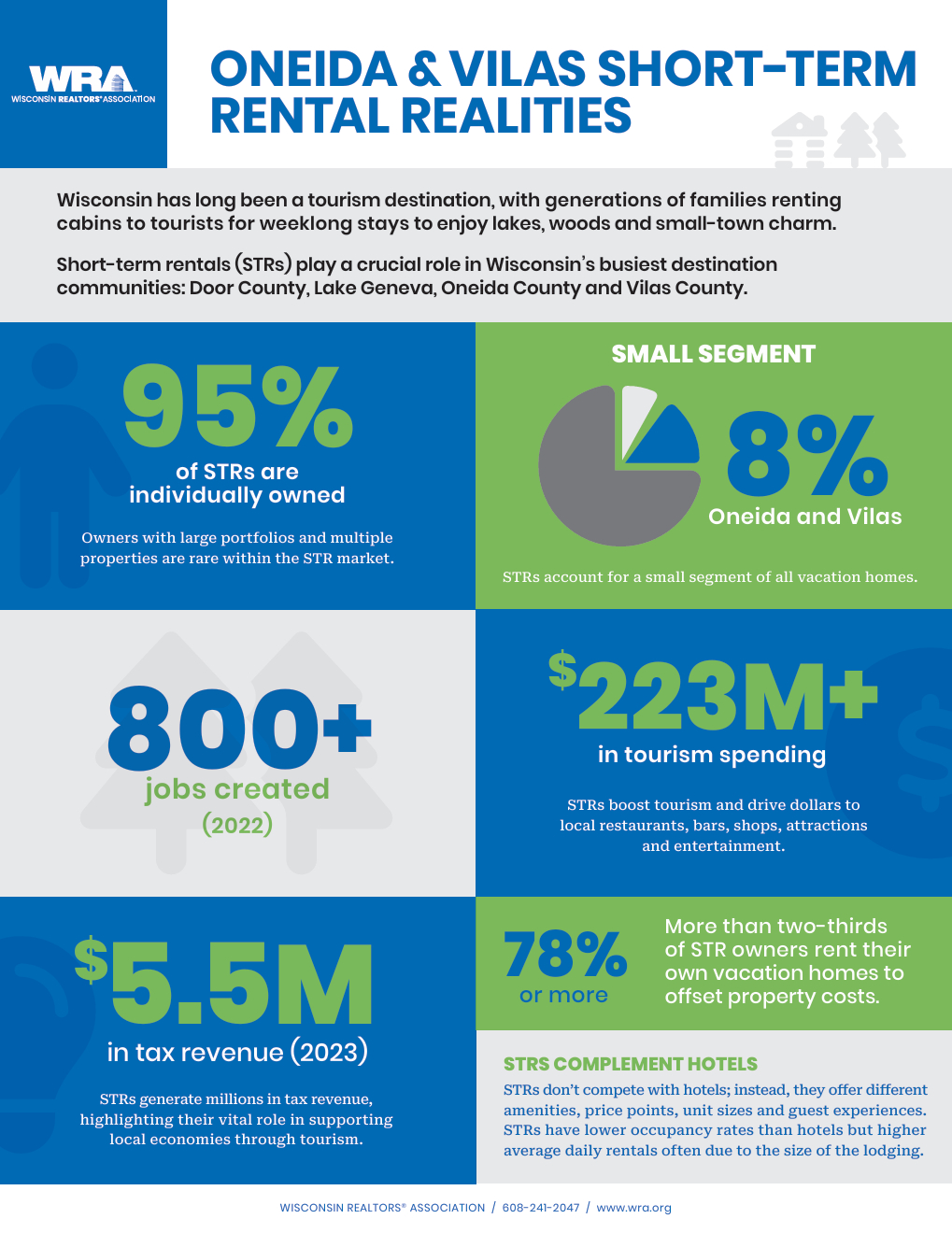Short-Term Rentals
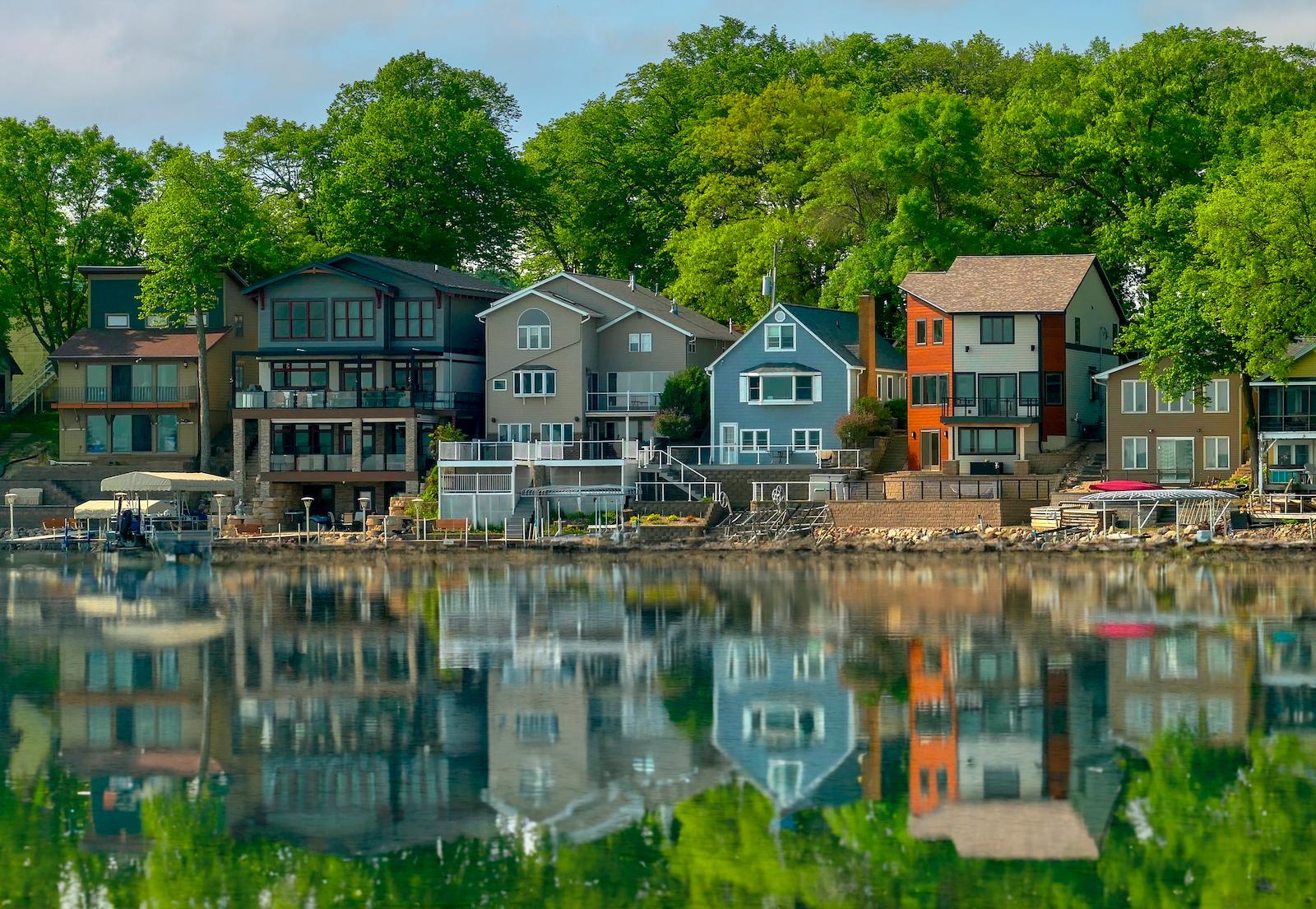
Wisconsin’s “right to rent” law protects your ability to rent out your property as a short-term rental (STR), while also preserving neighborhood quality of life.
Passed in response to local bans on property rentals shorter than 30 days, this law ensures that local governments address behavior—not rental activity. It promotes fair and reasonable regulation of short-term rentals by local governments.
The Study
Purpose of the Study
To better evaluate the multifaceted effects of STRs, an independent study examined economic, housing and community impacts in three of Wisconsin’s most popular tourism destinations: Door County, Lake Geneva, and Oneida and Vilas counties.
Focus Areas
Commissioned by the Wisconsin REALTORS® Association (WRA) with support from the National Association of REALTORS® (NAR), and conducted by RRC Associates, based in Boulder, Colorado, the study explored three areas of impact:
- Economic impacts: The study assessed how STRs contribute to and/or challenge local economies.
- Housing impacts: The study examined the effects of STRs on housing availability as well as affordability.
- STR regulation effects: The study evaluated the outcomes of current regulations.


Owners with large portfolios and multiple properties are rare within the STR market.
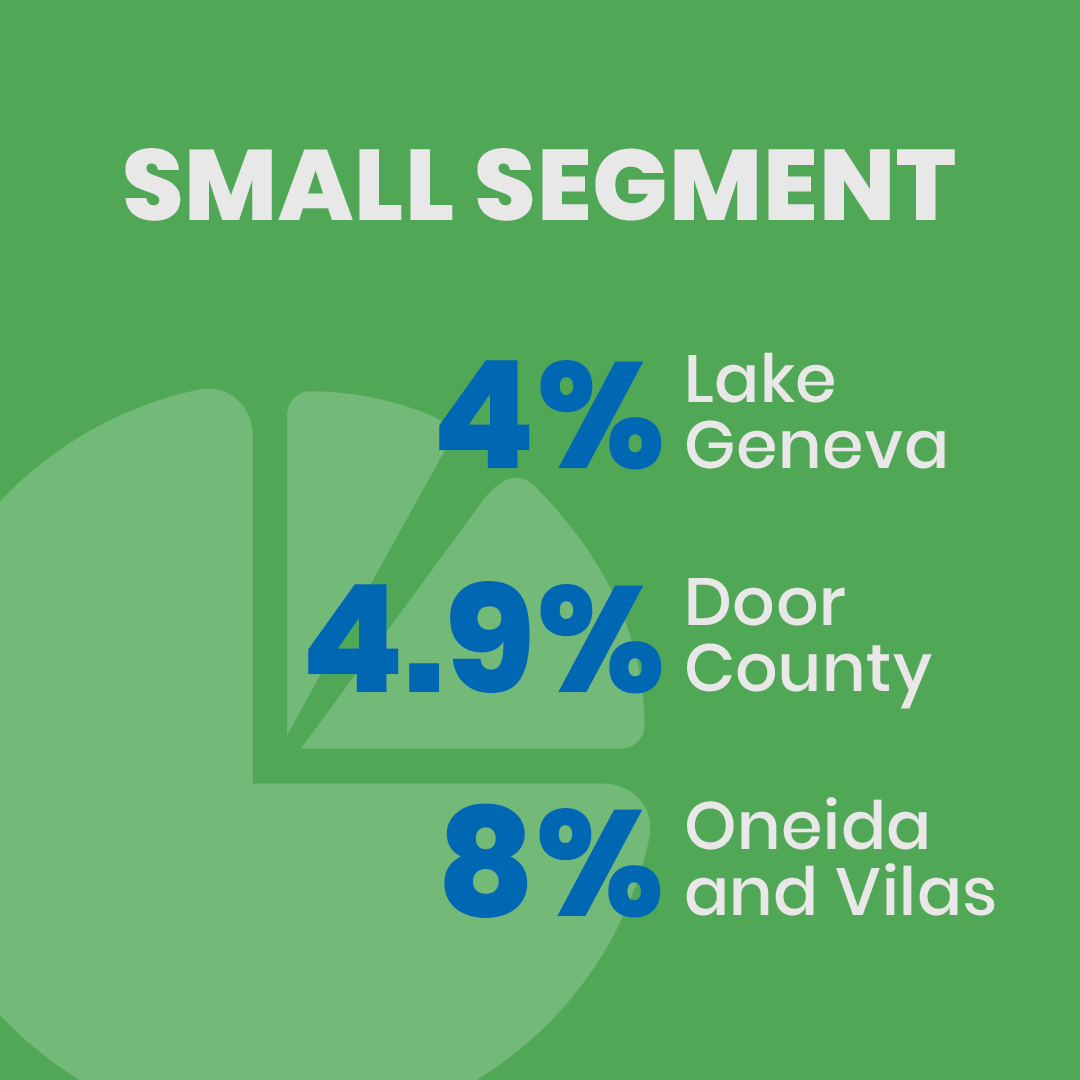
STRs account for a small segment of all vacation homes.
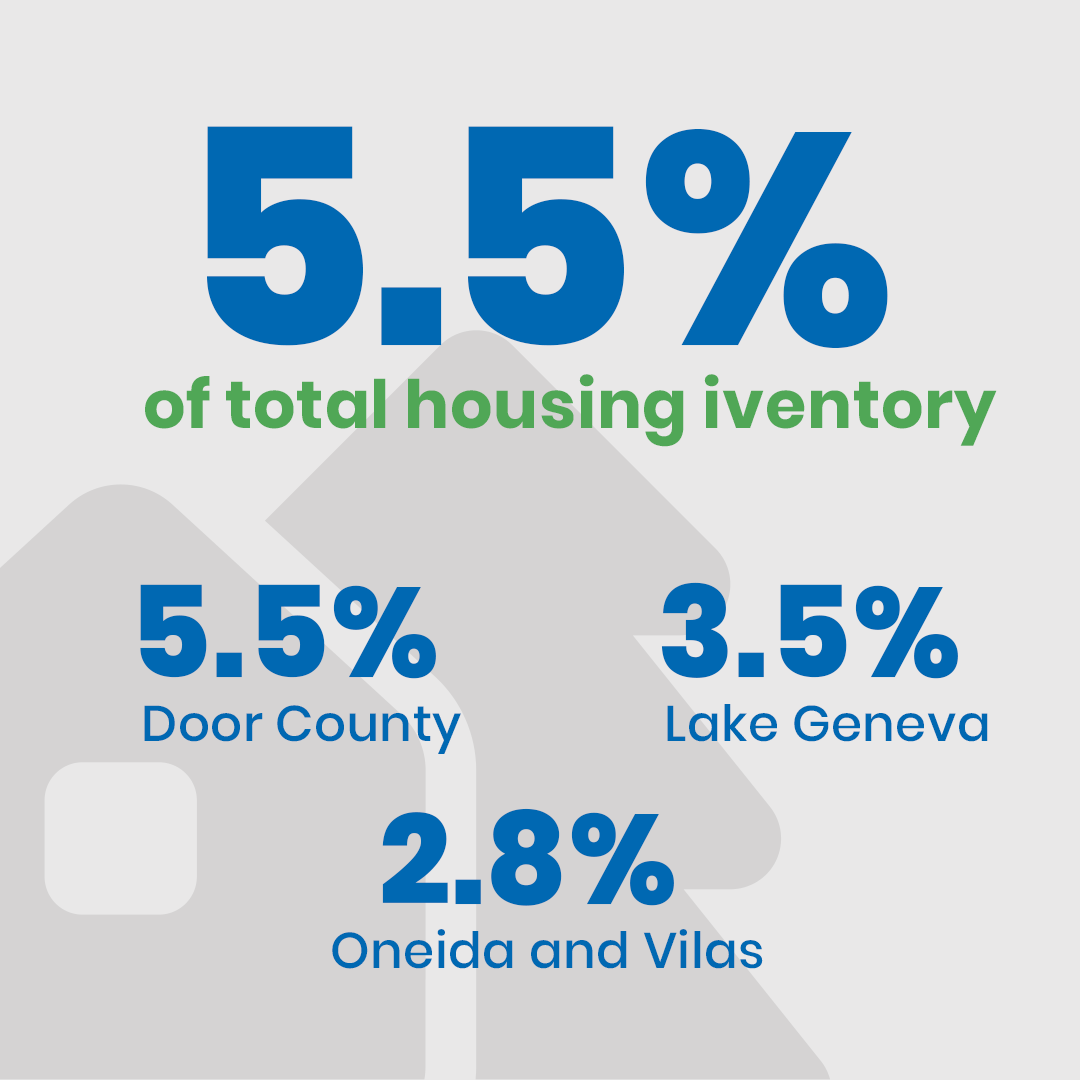
Most STRs are valued at over $400,000, which is above the range considered workforce housing.
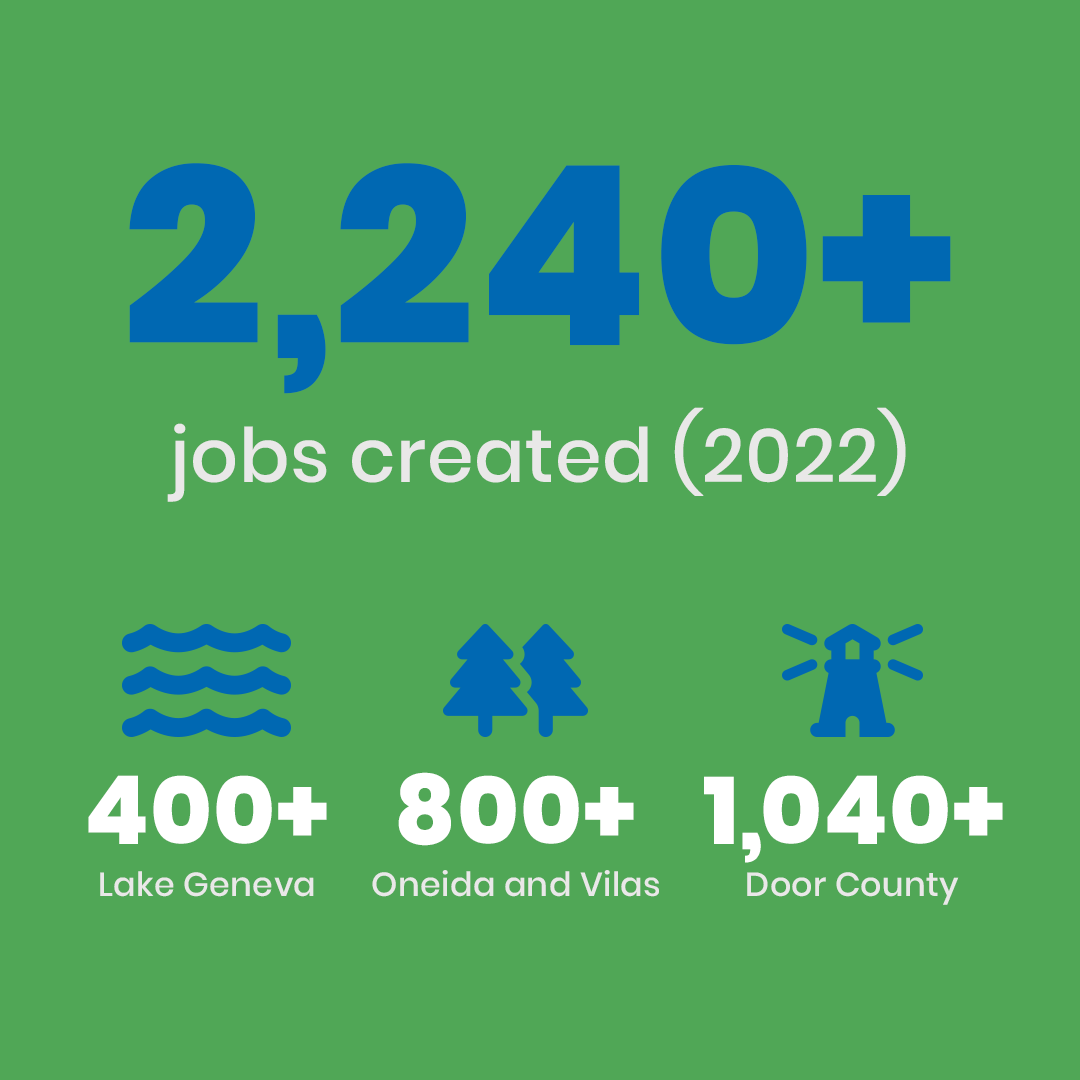
STRs create jobs, strengthening small businesses and the local economy.
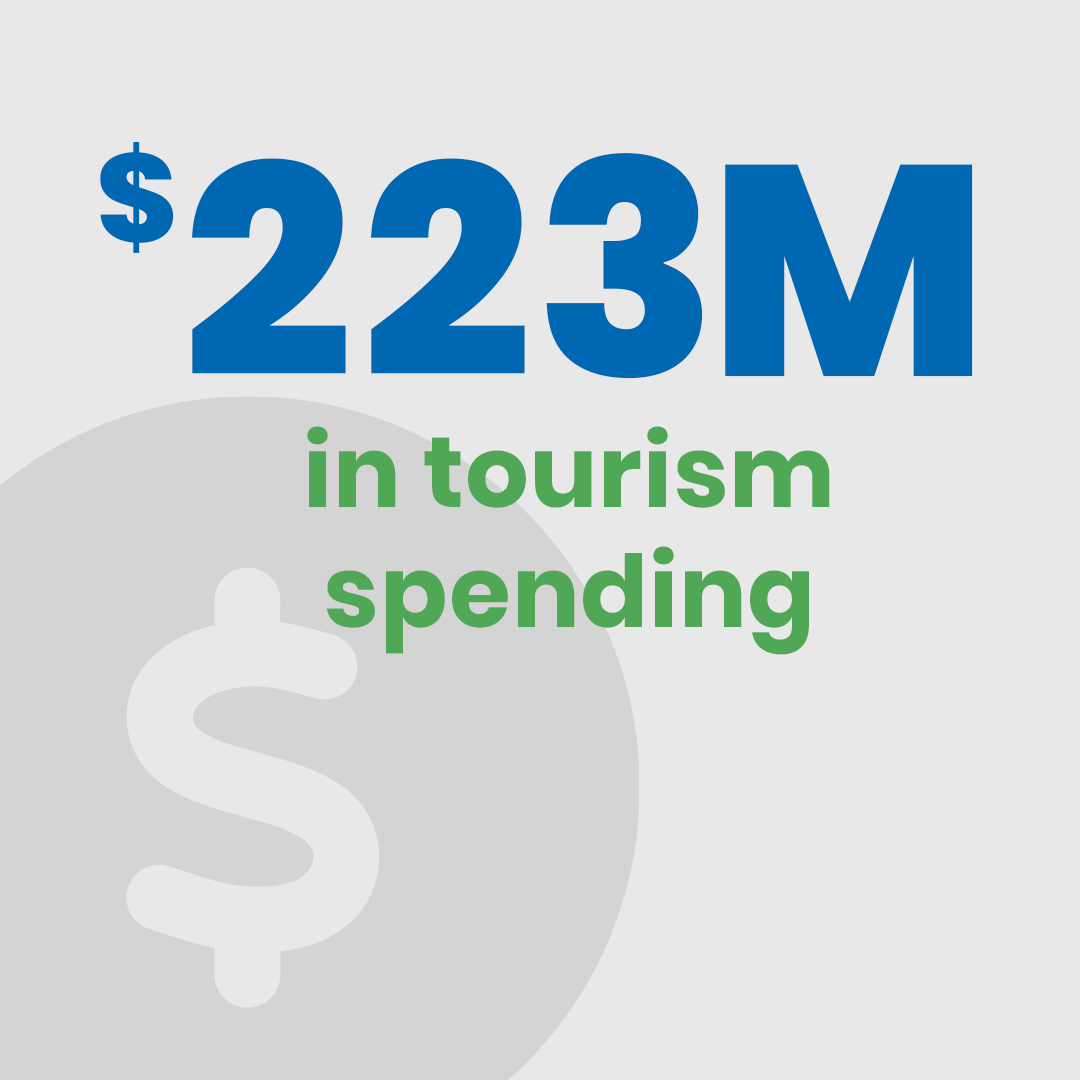
STRs boot tourism and drive dollars to local restaurants, shops and businesses.
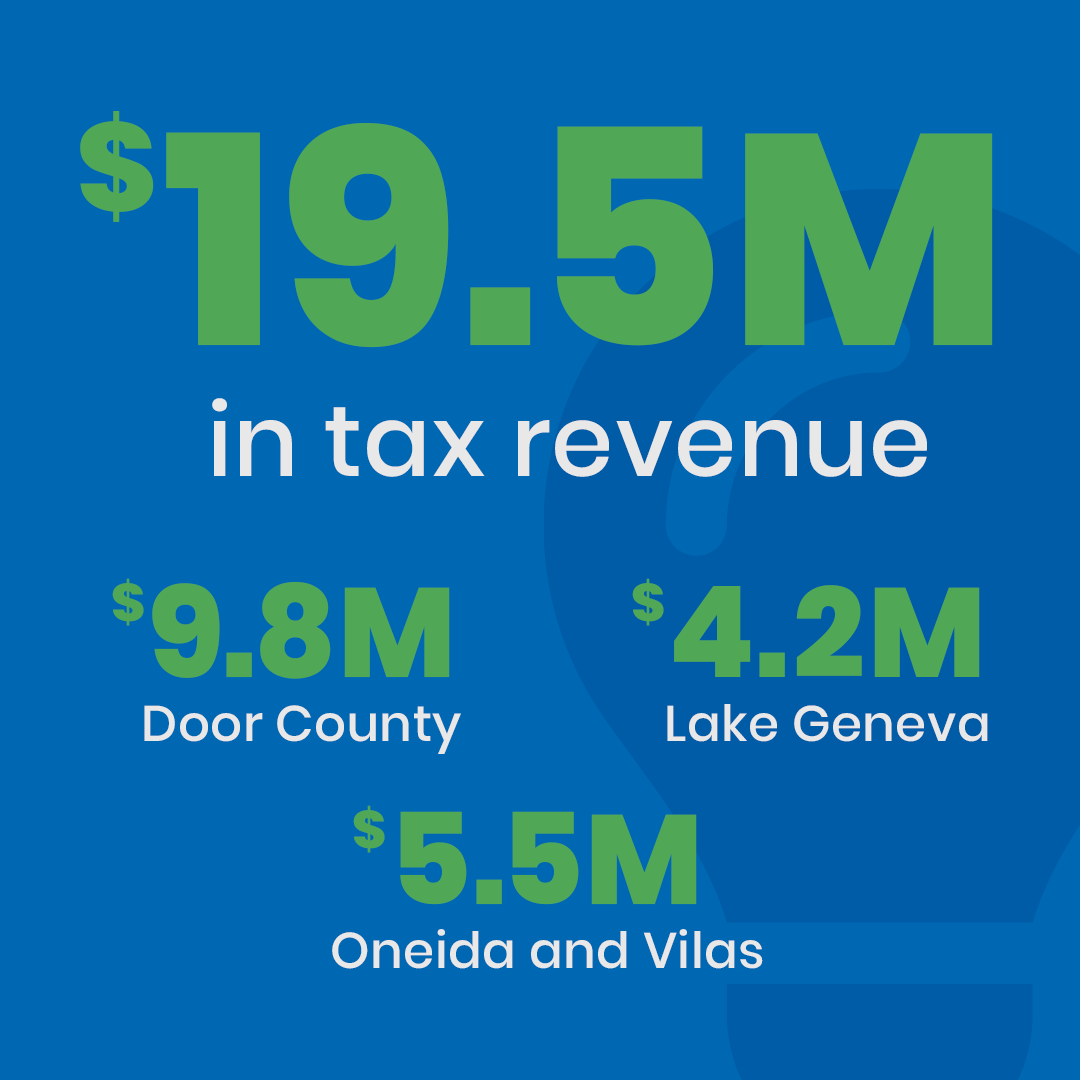
Study Conducted By:
RRC Associates — a nationally recognized research firm specializing in resort communities, with extensive experience working with municipalities, counties, state governments, and the private sector. See detailed data and key takeaways for each region in the STR study.
Door County
Lake Geneva
Oneida & Vilas
To request a copy of the full report, contact the WRA’s Cori Lamont at [email protected].
Top Five Things To Know About Short-Term Rentals
1. Local Governments Can Regulate But Not Prohibit Short-Term Rentals Seven Days Or Longer
Counties, cities, villages and towns cannot prohibit homeowners from offering rentals for a time frame of seven consecutive days or longer. This law does not apply to condominium associations or homeowners associations.
2. Permits Are Allowed But Must Be Reasonable
The local permit cannot be overly restrictive, resulting in a de facto prohibition on STRs. Permits should be administrative in nature and contain objective and reasonable standards.
3. There Is a Six-Month Cap
The law allows local governments to place a six-month cap on the amount of time that property owners can rent out their home during any 365-day period. The law also allows but does not require local governments to require those six months to be continuous. Property owners choose which six-month period they rent out their property.
4. State License Required
While not a new requirement, most STRs must obtain a “tourist rooming house” license from the Wisconsin Department of Agriculture, Trade and Consumer Protection (DATCP).
5. Taxes Must Be Collected
Property owners and rental platforms are required to collect state sales and use tax.
Why This Law Matters
Protect Property Rights
The law affirms a homeowner’s right to use their property as they see fit — including renting it out — while still allowing local governments to address legitimate concerns. This balance prevents broad or arbitrary restrictions that diminish property value or economic opportunity. Municipalities remain empowered to enforce ordinances related to noise, parking, and health/safety just as they do with any property.
Support Economic Activity
Prevent Overreach and Blanket Bans
By prohibiting outright bans on rentals shorter than seven days, the law prevents a one-size-fits-all restrictions that punish all homeowners for the behaviors of a few. The law ensures that regulations are tailored, not punitive.
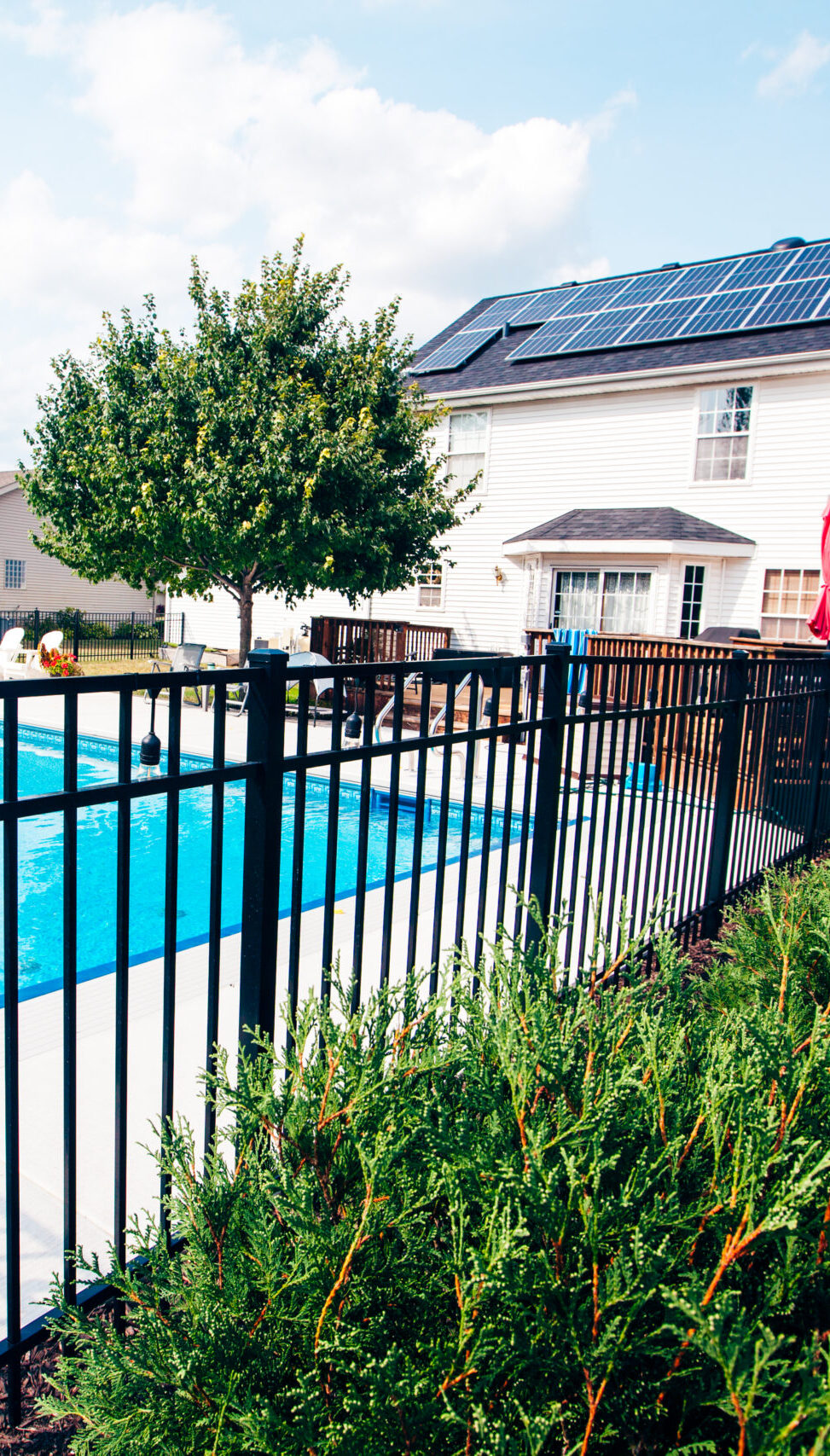
Concerned About a Local Ordinance?
If you have questions or concerns about a proposed or existing short-term rental ordinance, contact the WRA Legal Action Program.
Wis. Stat. § 66.1014 Limits On Residential Dwelling Rental Prohibited.
Wis. Stat. § 66.1014, often referred to as the “right to rent” law, limits the ability of local municipalities to prohibit the rental of STRs. View Entire Statute

